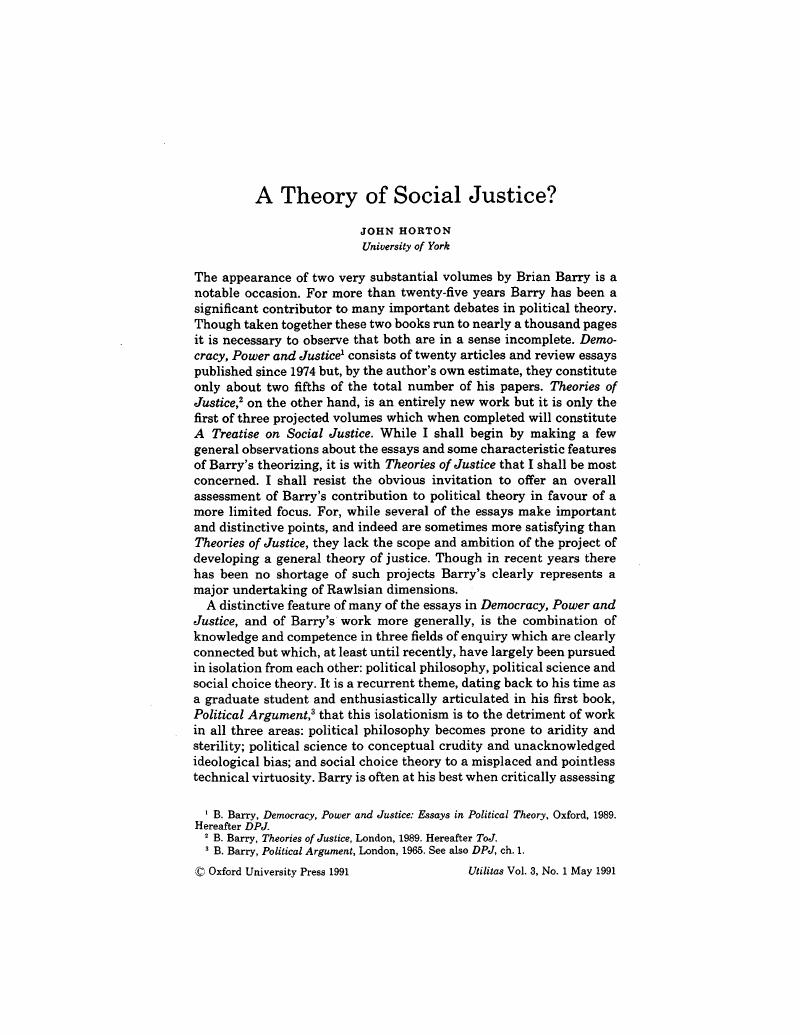Published online by Cambridge University Press: 26 January 2009

1 Barry, B., Democracy, Power and Justice: Essays in Political Theory, Oxford, 1989. Hereafter DPJ.Google Scholar
2 Barry, B., Theories of Justice, London, 1989. Hereafter ToJ.Google Scholar
3 Barry, B., Political Argument, London, 1965Google Scholar. See also DPJ, ch. 1.
4 Sen, A. K., ‘The Impossibility of a Paretian Liberal’, Journal of Political Economy, lxxviii (1970), 152–7.CrossRefGoogle Scholar
5 Fried, C., Right and Wrong, Cambridge, Mass., 1978.CrossRefGoogle Scholar
6 DPJ, chs. 4 and 5.
7 Barry, B., The Liberal Theory of Justice, Oxford, 1973.Google Scholar
8 See e.g. Darwell, S. L., Impartial Reason, Ithaca, 1983.Google Scholar
9 See e.g. Kearns, D., ‘A Theory of Justice and Love: Rawls on the Family’, Politics, xviii (1983), 36–42.CrossRefGoogle Scholar
10 Rawls, J., ‘Kantian Constructivism in Moral Theory’, Journal of Philosophy, lxxvii (1980), 515–72.Google Scholar
11 See Gewirth, A., Reason and Morality, Chicago, 1978Google Scholar, and Human Rights: Essays on Justification and Applications, Chicago, 1982.Google Scholar
12 Barry, B., ‘Review of Anarchy, State and Utopia’, Political Theory, iii (1975).Google Scholar
13 Rawls, J., A Theory of Justice, Oxford, 1971.Google Scholar
14 Particularly DPJ, ch. 18.
15 Barry makes this point explicitly against Gauthier. See Gauthier, D., Morals By Agreement, Oxford, 1986.Google Scholar